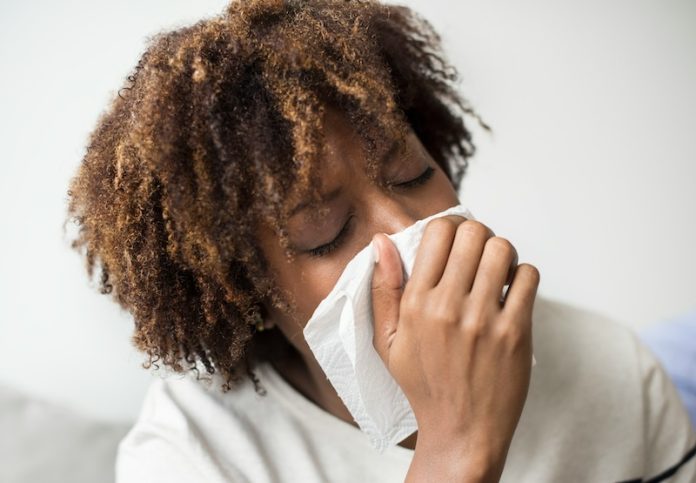
Millions of American adults are grappling with the lingering effects of long COVID, with nearly one in five sufferers experiencing symptoms so severe that they disrupt daily life.
This new insight, published in the CDC’s Morbidity and Mortality Report, highlights the growing burden of long COVID on individuals and communities.
Long COVID refers to a wide range of symptoms that persist for at least three months after recovering from an initial COVID-19 infection.
Common complaints include extreme fatigue, brain fog, coughing, and heart palpitations, according to researchers at the U.S. Centers for Disease Control and Prevention (CDC).
Other symptoms may include shortness of breath, sleep difficulties, depression or anxiety, joint pain, and digestive issues.
The impact of these symptoms can vary. While many people see significant improvement within three months, others continue to struggle for six months or longer.
This persistence can severely limit everyday activities, from walking and exercising to working, shopping, and managing household tasks.
The study, led by Nicole Ford of the CDC’s National Center for Immunization and Respiratory Diseases, analyzed 2023 federal survey data to better understand the prevalence of long COVID among American adults.
The researchers found that about 6.4% of respondents—roughly one in 16 adults—reported living with long COVID. Among these individuals, nearly 20% said their symptoms caused significant limitations in their daily lives.
These findings point to the need for better support systems to help people with long COVID recover. Health care resources, mental health support, and workplace accommodations may be essential for many to regain their independence and quality of life.
The CDC emphasizes that addressing these needs is crucial for individuals whose symptoms interfere with basic activities.
Prevention, however, remains the most effective strategy. The best way to avoid long COVID is to reduce the risk of contracting COVID-19 in the first place. Vaccination and other public health measures play a key role in minimizing both infections and severe cases that could lead to long-term complications.
As the understanding of long COVID continues to evolve, studies like this underscore the importance of recognizing its impact and supporting those affected.
By combining prevention efforts with targeted resources for recovery, the goal is to alleviate the burden on millions of Americans dealing with this condition.
If you care about wellness, please read studies about nutrients that could combat inflammation in older people, and essential foods for healthy aging.
For more health information, please see recent studies about the link between processed foods and chronic diseases, and a simple diet change for a healthier life after 65.
Copyright © 2024 Knowridge Science Report. All rights reserved.










Leave a Comment